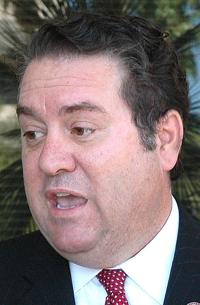PHOENIX — Claiming he’s been defamed, Attorney General Mark Brnovich is suing the backers of the Proposition 127 campaign.
Legal papers filed Wednesday in Maricopa County Superior Court claim commercials paid for by the Clean Energy for a Healthy Arizona Committee say there is a link between Brnovich’s changes to the Proposition 127 ballot description and money from the parent company of Arizona Public Service to help his re-election campaign.
Brnovich said he had no communication with the state’s largest electric utility as he added words to the ballot description saying the renewable energy mandate, if approved, would occur “irrespective of cost to consumers.”
He defended that language even though state Elections Director Eric Spencer, a Republican like Brnovich, called it “eyebrow raising” and suggested the wording changes came with both political and legal risks.
But what most offends Brnovich — and a key basis for his lawsuit — are contentions in commercials paid for by the committee that the attorney general is “corrupt” and that he was helping to “rig” the election.
Brnovich filed suit as an individual, not in his official capacity as attorney general.
With early voting already started and the election just two weeks away, Brnovich is not asking a judge to order the commercials halted. Instead he is seeking unspecified damages as well as a punitive award “to punish defendants and deter it and others from emulating defendants’ conduct.”
If Brnovich wins his race against Democrat January Contreras, it may be he would simply seek his legal fees, said his attorney Dennis Wilenchik.
And if he loses, the most visible damage to Brnovich would be the loss of his $90,000 salary. But Wilenchik said that charging publicly that Brnovich, as a state official, is corrupt, is “extremely hurtful” to his career.
“He’s a lawyer,” Wilenchik said. “There could be Bar complaints about him. After the election, we’ll assess that.”
In a prepared statement, D.J. Quinlan, spokesman for the Proposition 127 campaign, said the lawsuit “will fail.”
At the heart of the issue is the role the attorney general plays in elections.
By law, the explanations that appear on the ballot of propositions are written by the secretary of state, subject to review and alterations by the attorney general.
Proposition 127 would constitutionally require most utilities to obtain half of their power from renewable sources by 2030.
That would override the current policy of the Arizona Corporation Commission, which sets a 15 percent renewable goal by 2025. That policy is subject to review and amendment based on changing factors, including cost. The initiative has no such escape clause.
Based on that, Brnovich added wording to the ballot language to say that the 50 percent mandate, if approved, would come “irrespective of cost to consumers.” That is precisely the argument APS has been making against the measure, with the utility within days then using the explanation in its commercials.
The TV ads financed by the pro-127 organization accuse Brnovich of doing the company’s bidding, even superimposing APS logos on his suit jacket similar to the outfit of a NASCAR driver.
The ad cites the more than $400,000 that Pinnacle West Capital Corp., parent of APS, gave to the Republican Attorneys General Association, a group that in turn has spent more than $1.2 million to win Brnovich another term.
“He rigged official ballot language to help APS block affordable solar,” the commercial says, urging voters to “say no to corruption and higher bills” and telling people to vote against Brnovich and in favor of the initiative.
Wilenchik said there are several problems, starting with the fact that any money APS and Pinnacle West gave to the national association was not earmarked to help Brnovich.
He said the wording of the commercials is “patently false,” with words like “rig” implying that someone illegally and wrongfully interfered with an election.
Spencer, in an email to the Attorney General’s Office responding to the added wording, had said the new language “is certainly eyebrow-raising because it cites information exogenous to the ballot measure itself.”




